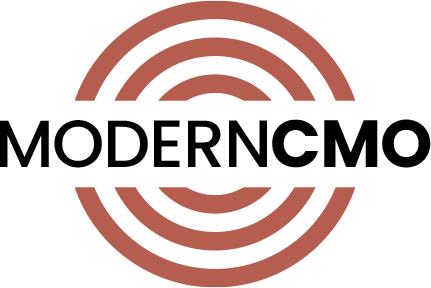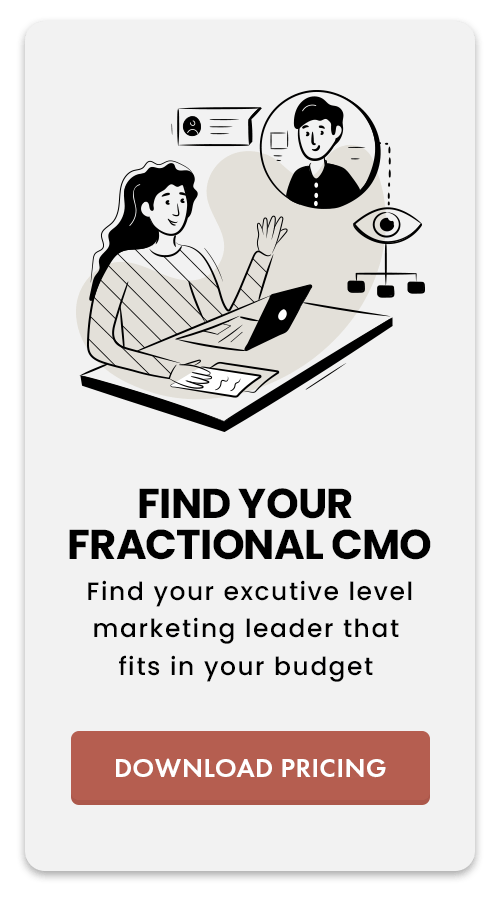As businesses grow, so does the need for a comprehensive marketing strategy. The question many business owners face is whether to hire an in-house marketing employee, outsource to a marketing agency or consultant, or invest in a fractional CMO. Each option has its advantages and disadvantages, and the decision ultimately depends on the specific needs and goals of the business. In this article, we will explore the differences between these options and why a fractional CMO may be the smarter, more profitable choice.
- Marketing Agency
Marketing agencies are external organizations specialized in various facets of marketing, spanning from digital marketing and content marketing to SEO and advertising. Here’s a detailed look at the pros and cons of partnering with a marketing agency:
Pros:
a. Expertise Galore: Marketing agencies boast teams of specialists with diverse skill sets and extensive industry experience, ensuring that you tap into a wealth of knowledge and creativity.
b. Cost-Effective Solutions: Agencies typically offer a comprehensive suite of services for a fixed fee, often proving more economical than hiring multiple in-house employees to cover various marketing aspects.
c. Scalability at Your Fingertips: Agencies are adept at adapting their services to meet your changing needs and objectives, ensuring that your marketing strategy remains agile and responsive.
d. Access to Cutting-Edge Tools: Agencies typically have access to state-of-the-art marketing tools and software, enabling you to leverage the latest technologies without the hassle of managing them internally.
Cons:
a. External Understanding: Agencies may not fully grasp your brand’s intricacies and organizational culture, which could potentially impact messaging and alignment with your core values.
b. Communication Challenges: Managing an agency can be time-consuming, and maintaining seamless communication may sometimes be a challenge, leading to misunderstandings or delays.
c. Reduced Control: While agencies excel in execution, you may have less control over the day-to-day implementation of your marketing strategy.
- Marketing Consultant
Marketing consultants are individuals or firms that offer specialized advice and strategic guidance on your marketing endeavors, often on a project-by-project basis. Here’s a closer examination of the pros and cons associated with hiring a marketing consultant:
Pros:
a. Rich Experience and Insights: Consultants bring a treasure trove of experience and knowledge to the table, providing you with expert insights and guidance.
b. Cost-Effective Expertise: Hiring a consultant can be more cost-effective than bringing on a full-time employee, particularly for specific projects or when you require specialized expertise.
c. Flexibility in Engagement: Consultants can be engaged for specific projects or retained on a part-time basis, providing you with the flexibility to adjust to your evolving needs.
Cons:
a. Limited Bandwidth: Consultants may have restricted availability, which can become a hindrance if you require ongoing or continuous support.
b. In-House Integration: Similar to agencies, consultants may not seamlessly integrate with your in-house team, potentially creating a gap between strategic advice and hands-on execution.
c. Responsibility Divide: While consultants can offer invaluable advice, they may not always be responsible for the execution of your marketing plan, which can lead to coordination challenges.
- Fractional CMO
A Fractional Chief Marketing Officer (CMO) is a seasoned marketing professional who works part-time or on a project basis to provide high-level strategic direction for your company’s marketing efforts. Let’s explore the advantages and drawbacks of hiring a Fractional CMO:
Pros:
a. Seasoned Leadership: Fractional CMOs offer strategic leadership and deep industry knowledge, functioning as a guiding force for your marketing endeavors.
b. Cost-Efficiency: They are typically more cost-effective than hiring a full-time CMO, enabling you to benefit from senior-level expertise without the associated high costs.
c. Tailored Engagement: You have the flexibility to tailor the involvement of a Fractional CMO to your specific needs and budget, ensuring that their role aligns precisely with your goals.
Cons:
a. Limited Availability: Fractional CMOs may not always be available for day-to-day tasks or hands-on execution, which can pose a challenge if you require continuous support.
b. Integration Challenges: They may not fully integrate with your internal team, potentially resulting in a disconnect between strategic guidance and operational execution.
c. Dependency Risk: Relying heavily on a Fractional CMO may create a dependency, which can become problematic if they decide to disengage from your business.
- In-House Employee
Choosing to hire an in-house marketing employee entails bringing someone on board as a full-time or part-time team member dedicated to your marketing efforts. Here’s an in-depth analysis of the pros and cons of this option:
Pros:
a. Complete Integration: In-house employees become an integral part of your team, immersing themselves in your brand, culture, and day-to-day operations.
b. Direct Oversight: You have direct control and supervision over the work of your in-house marketing employee, allowing you to maintain a tight grip on your marketing strategy.
c. Loyalty and Commitment: In-house employees are more likely to be deeply committed to your organization’s long-term success, aligning their goals with yours.
Cons:
a. Higher Costs: In-house employees can be more expensive when factoring in salary, benefits, and overhead expenses, especially if you require a full team to cover various marketing aspects.
b. Limited Expertise: A single in-house employee may not possess the breadth of expertise needed to cover all facets of marketing effectively, necessitating additional hires.
c. Recruitment Challenges: Finding the right talent can be time-consuming and challenging, as you need to ensure they not only possess the necessary skills but also fit seamlessly into your organizational culture.
Selecting the ideal entity to lead your marketing efforts—be it a marketing agency, consultant, Fractional CMO, or in-house employee—hinges on a meticulous evaluation of your distinct needs, budget constraints, and overarching business objectives. Each option offers its own set of merits and demerits, and there is no universally applicable solution.
As you make your decision, take into account your current resource allocation, the scale of your marketing needs, and your company’s unique culture. In many instances, a hybrid approach that combines two or more of these options may provide the most effective marketing strategy, allowing you to harness the strengths of each approach in synergy. Regardless of the path you choose, remember that the key to success lies in a well-thought-out and adaptable marketing strategy that aligns seamlessly with your broader business goals.


